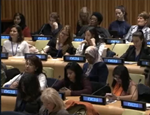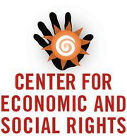Published on Thu, 2016-03-17 20:23
The two-day UNCTAD expert meeting (16-17 March) on investment, innovation and entrepreneurship will be taking stock of recent developments in investment policy at the national, bilateral, regional and multilateral levels, in particular reform efforts related to the International Investment Agreements (IIA) regime. According to UNCTAD, the Multi-Year Expert Meeting on Investment, Innovation and Entrepreneurship for Productive Capacity-Building and Sustainable Development will also address policy perspectives with regards to science, technology and innovation (STI) and provide an update on entrepreneurship policies, in the context of the Sustainable Development Goals (SDGs). |
Published on Thu, 2016-03-17 19:36
The days leading to the adjournment of the Philippine National Congress every three years have always been an uneventful political time. At about this time, Congress is a picture of empty chairs and half-lit hallways as most legislators would have already been prematurely campaigning for their re-election or that of a family members’ new election bid rather than burdening themselves with attending sessions. |
Published on Fri, 2016-03-11 12:07
During the United Nations observance of International Women's Day 2016, Barbara Adams from Global Policy Forum and Social Watch addresses the obstacles to Women's Rights: the unfair global trade and investment system and the lack of a debt workout mechanism deviate the resources that should ensure an universal social protection floor. |
Published on Thu, 2016-03-10 13:06
This week, the UN Statistical Commission convenes for its annual meeting in New York. At the top of its agenda will be the latest report of the Inter-Agency and Expert Group on Sustainable Development Goal Indicators (IAEG-SDGs), which presents a final proposal for global indicators to monitor the SDGs. In the run-up to the Commission, various civil society groups have expressed their concern about particular indicators or missing indicators, as well as the opaque decision-making process. |
Published on Thu, 2016-03-10 09:00
Financiers can have significant influence over the operations of multinational companies and their role needs to be the subject of greater interrogation, in theory, policy and practice. Financial institutions are the less visible players in the work of corporations. This is probably why, in the international business and human rights debate, there is little focus on the role of financial institutions. But the lack of focus remains strange given the indispensable and powerful role played by those who finance the operations of corporations. Part of the reason for this, as Dowell-Jones and Kinley point out, is that human rights lawyers and actors are not au fait with financial doctrine and language. In order to address the role – both positive and negative – of financial institutions, we need to remedy the inability to understand financial language. This was part of the motivation behind the Wits University Round Tables in 2011 which brought together bankers, activists and academics. |
SUSCRIBE TO OUR NEWSLETTER






